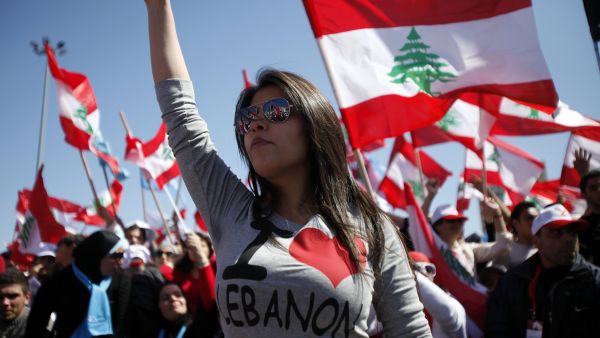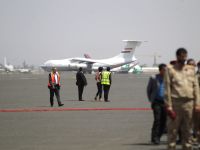BEIRUT—The ongoing political turmoil in Syria, which has been categorized as a security problem, is not only an internal issue that matters to the people and the regime of the country. It is, in fact, a general Arab issue that is of great concern to people outside Syria as well.
For us in Lebanon, what is happening in Syria almost qualifies to be a domestic Lebanese issue, for it affects us positively or negatively in as much as it affects Syrians themselves—and possibly it affects us even more than them, if we take into account its political, security, social and economic consequences and the historical relations between people in both countries. Although the Lebanese people do not adopt a unified opinion about the regime in Damascus, they perceive that it is beginning to tremble as something similar to an earthquake in the region, if Lebanon remains the natural ground of its worst implications.
The continuity of the regime—which has ruled Syria since 1970 through its founder, the late President Hafez al-Assad, and his son and successor, Bashar al-Assad—has brought back the stability that Syria had lost earlier. This achievement enabled the regime to play a growing role in the region and to position itself as the “the guardian of the eastern gate,” as some of its supporters like to say.
Rivals of the Syrian regime in some bigger and richer Arab countries saw that Damascus was overstepping its bounds; but they had to accept a reality set by Washington to supposedly ensure stability in a volatile region.
It is true that the regime in Syria benefitted as well from its participation in the October 1973 war against Israel, which was the only war waged with an Arab decision—regardless of the results, which again were imposed by the West, even if Arabs agreed to them.
There were many points in history when the Syrian regime had international mandates to intervene in Lebanese domestic affairs.
The Syrian regime interfered in Lebanon with an international green light from the late 1960s to 1982, when Israel invaded Lebanon to purge it of armed Palestinian groups. Then it interfered in the country again during the Lebanese civil war, which was rekindled by the May 17, 1983 agreement.
The Taif Agreement, which ended the civil war in Lebanon in September 1989, authorized the presence of Syrian forces in Lebanon.
When Michel Aoun's “rebellion” was ended in 1990, the Syrian regime was allowed to extend its hand in Lebanon as an award for its participation in the “liberation of Kuwait.”
The international mandate for Syria in Lebanon was reconsidered after the US invasion of Iraq in 2003, especially because of Bashar al-Assad’s unyielding opposition to the invasion.
As such, Lebanon was transformed from an asset to a burden for Syria. It became a burden with its continuous political turmoil, which culminated in the death of former Prime Minister Rafik al-Hariri. The Hariri murder prompted the withdrawal of the Syrian army from Lebanon without any consideration for its sacrifices there.
Today, we have learned that history has brought back to Syria its old role in Lebanon and in a way faster than expected.
The return of this Syrian role in Lebanon confirms the historical, social and economic bonds between people in both countries.
The overlap of those bonds or conditions explains concerns in Lebanon about the Syrian regime, which faces pressing demands to implement the reforms that it has promised.
The Lebanese, like the Syrians, were surprised, however, by the Syrian regime’s use of ammunition to suppress demands for reform, and by its resort to the desperate orthodox styles of blaming “infiltrators” and unidentified arms groups for inciting unrest and disturbing the public order.
Demonstrators in Syria did not call for ousting the regime, but demanded its reform as President Assad himself had promised. Mr. Assad had pledged to end corruption and put an end to those who have damaged his rule’s reputation through corruption activities.
People took to the streets in increasing numbers to call for political freedom, freedom of expression, of the press and of movement. They called for an end to the emergency law and to the one-party system, which appeared to them as no longer a legitimate source of decision making.
Demonstrators were, therefore, calling just for the implementation of what the president himself had already promised.
Even after the massacre in Deraa, for which there was no excuse as the regime itself said, the people continued to trust that “Mr. President” would end the emergency law and other restraining actions. But the president’s speech before the people’s assembly was disappointing and fell short of even what his advisor Buthaina Shaaban had promised in her first statement.
The delay resulted in renewed clashes in several cities, in which the first casualty was the trust in the desire or ability to implement the promised reform with the necessary urgency to halt the aggravation of the crisis.
With the current situation, it is not yet too late to overcome the crisis if reason is used and if there is belief and respect for the right of the people to be heard.
The people of Syria have sacrificed living standards and sacrificed their right to progress for the sake of protecting the regional profile of their nation. They have also supported their president as he gains momentum and ability to influence the course of events in the region.
Regimes in the Arab world have collapsed or are falling apart because they lost the way to the future and tried to imprison their people in the past.
Hope remains that President Assad is aware more than other leaders in the region of the realities of the day and that he believes in freedom and progress to make them happen.
For the sake of Lebanon's security and unity and with regard for Syria's status and distinctive role in our region, we call upon President Assad to stop the ongoing deterioration of the situation in Syria and take immediate actions to implements the reforms he has promised.
Further delay of the reforms could trigger more bloodshed, which would then be exploited by those with a security mindset in order to disrupt the march toward a better tomorrow.
By Talal Salman








